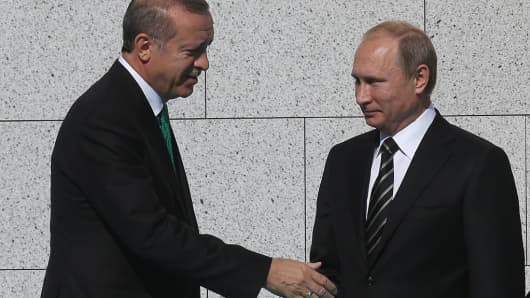The biggest risk in Russian/Turkish relations is arguably the top-down structure of power in both countries, where conciliation is often equated to weakness and political failure. The fiercely nationalistic, unbending and forceful leadership of Russia and Turkey makes compromise incredibly difficult. Neither President Erdogan nor President Putin forgive or forget.
Turkey's president has proven time again that he is not one to be bullied. During the G-20 Summit in Antalya in mid-November, Erdogan told his Russian counterpart in no uncertain terms that Turkey would not tolerate further incursions into Turkish airspace. Russian jets had for months been testing and probing Turkey and the rest of the NATO alliance. Putin nonetheless brushed off the warning, advising his host to treat Russian attack aircraft which violate Turkish airspace as "guests." The next uninvited guest was shot down.
Nonetheless, Russia's president is likely to continue waving the red rag at the Turkish bull. Earlier this year, Russia announced snap exercises in the South and Central military districts, and mobilized elements of the Caspian flotilla and Black Sea Fleet — a move that was clearly aimed at Turkey.
Provoking war with Turkey could massively back-fire, but such a gamble could pay off especially if the circumstances of the initial clash were ambiguous or unproven. A short scrap which could be painted as a victory for the Motherland, would boost Putin's already high domestic ratings while potentially magnifying divisions in NATO and embarrassing the alliance.





